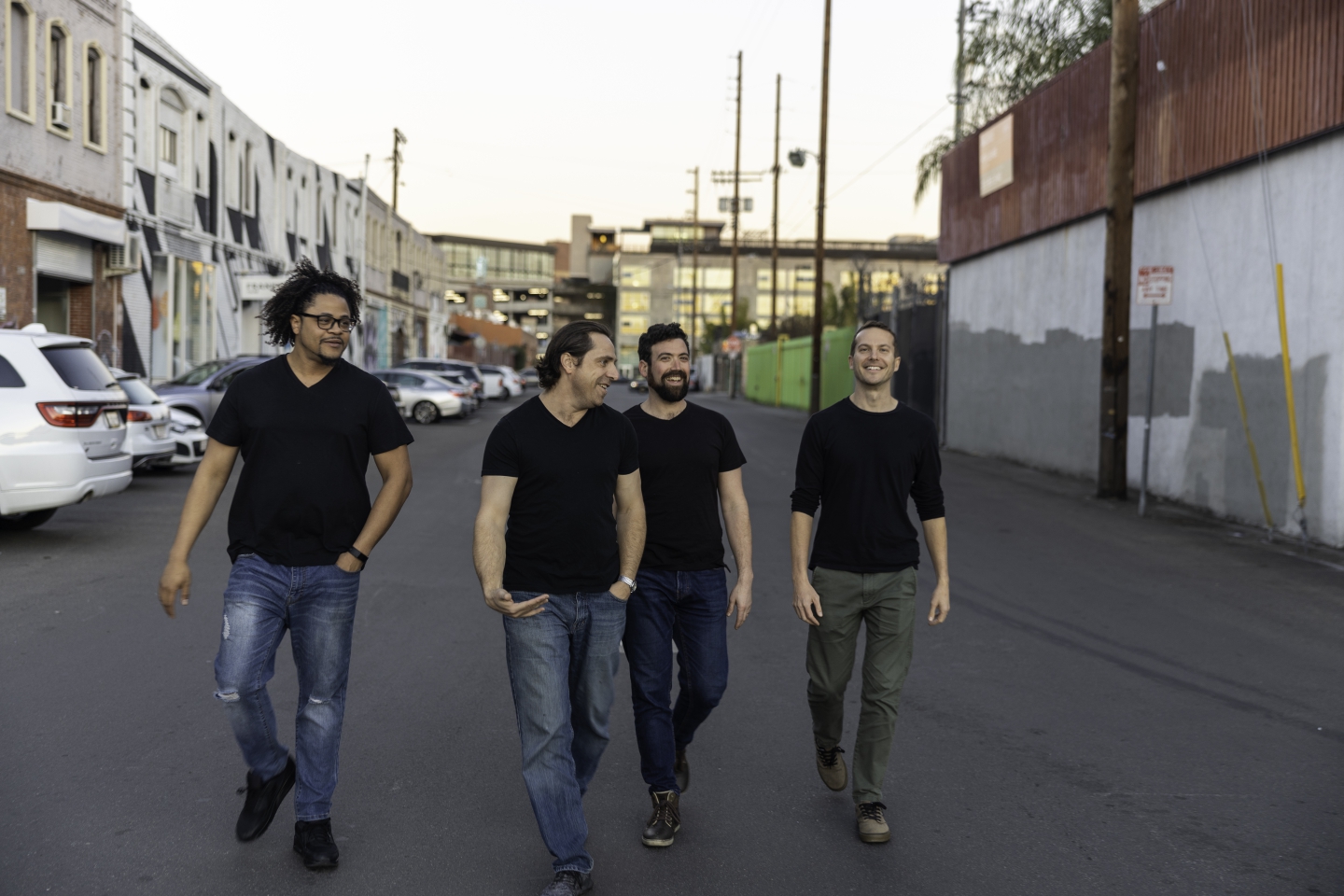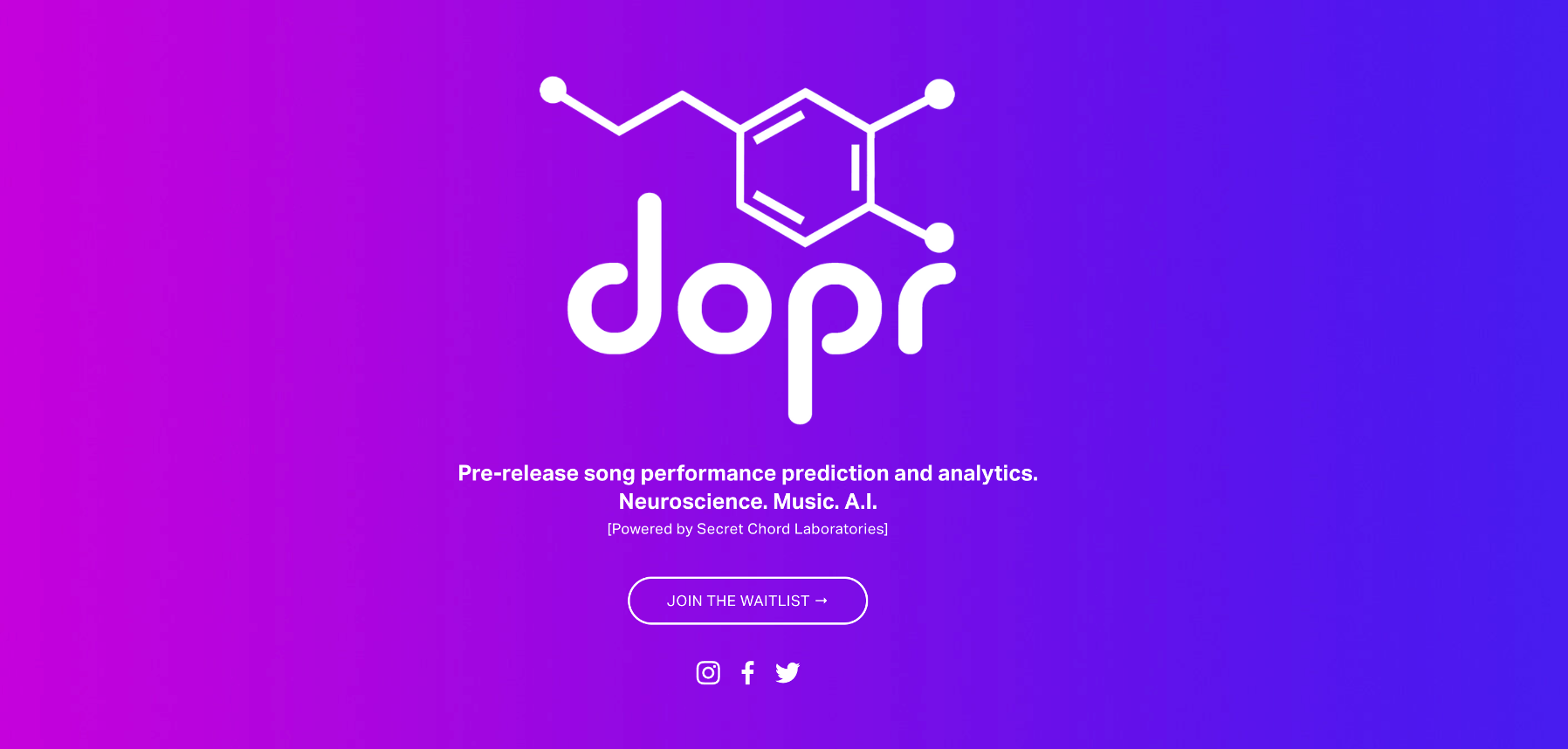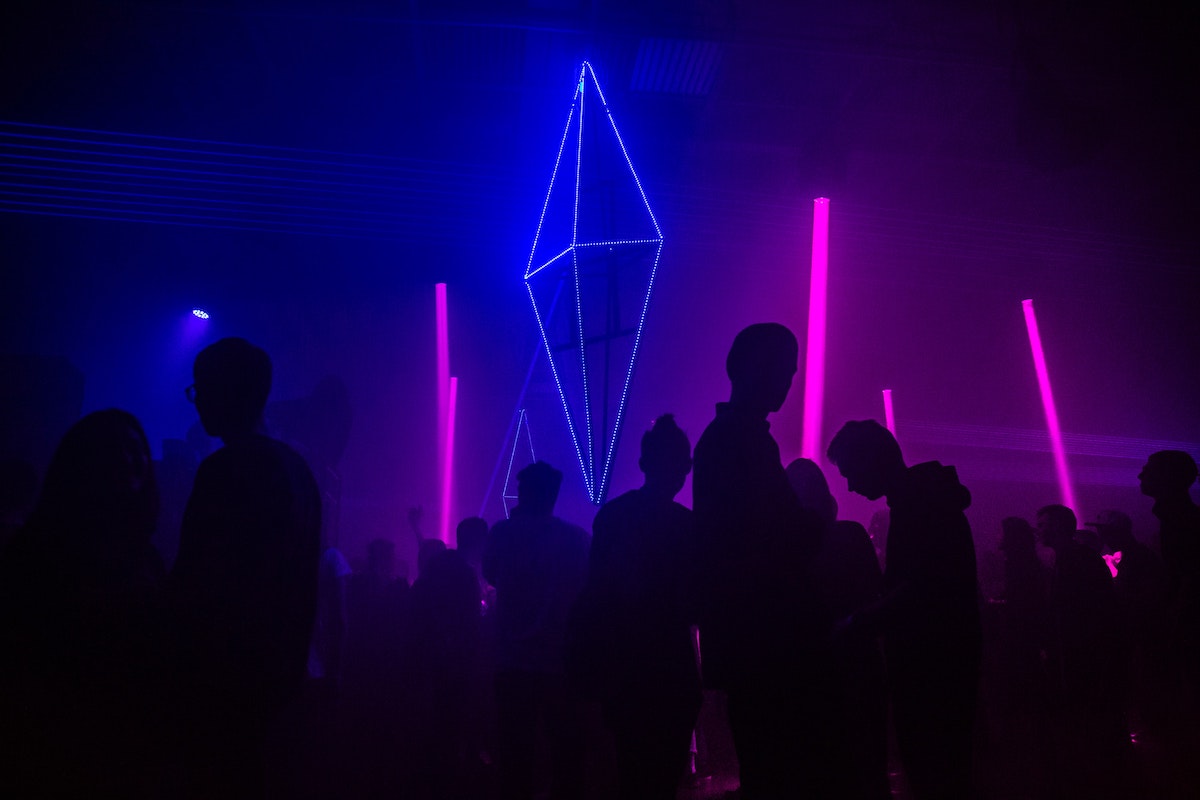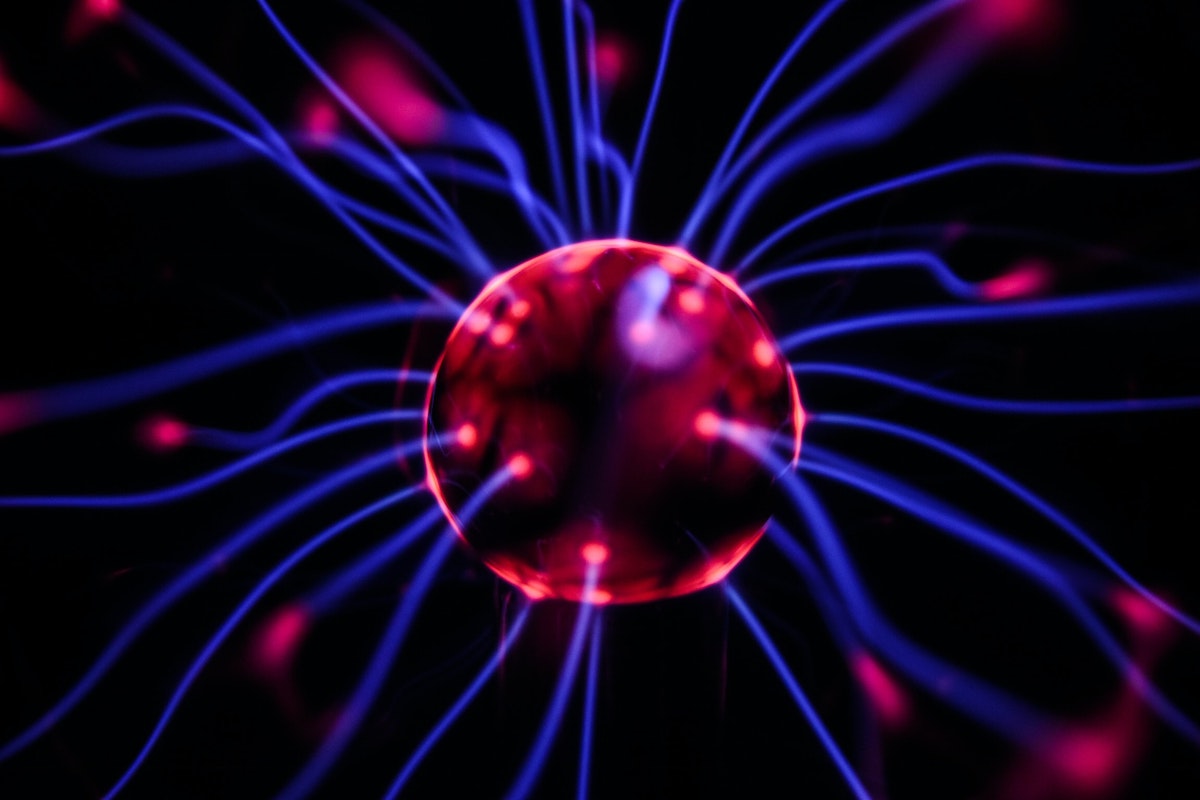Merrie Melodies: Secret Chord Laboratories builds an oracle into the minds of music listeners

Secret Chord Laboratories, Wallifornia ‘Start-Up of the Year’ 2020, is a music-tech gem at the crossroads between neuroscience, artificial intelligence and music enjoyment. Its mission: to identify how to select the perfect song for a wide range of industries, applications, moods, and functions. Their AI music engine, dopr, can predict the likelihood of a song achieving success for an intended purpose, pre-release, for a targeted audience. dopr has a range of implications for a variety of segments in the music industry: A&R, playlisting, marketing, recommendations, synchronization, production, and more.
Unlocking the doors to our brains’ mechanisms of music preference through neuroscience, music cognition, and AI is a noble objective – approaching neural alchemy. It brings with it the potential to enhance any human experience that is accompanied by music. Being able to predict the next commercial hit is akin to finding the philosopher’s stone for music engineers, especially those who wish to demonstrate that popularity is not only about gut feelings and subjectivity.
A noble quest, yes, but also one where many music lovers lose themselves, overwhelmed by data flows growing bigger every day: more than 40,000 new songs are uploaded daily on Spotify. Under the intriguing name Secret Chord Laboratories, a young team of neuroscientists, industry executives, music information retrieval engineers, and music lovers seems on its way to unravel the mystery. “It is all about Familiar Surprise,” says David S. Rosen, Ph.D., COO and co-founder, summing up in two words their years of research into expectation and preference as they are processed in the brain.
What makes you believe that Secret Chord Laboratories can succeed where many others failed?

Science has shown us that almost any human experience can be enhanced with the right choice of music, and we believe that using neuroscientific data to model the human brain can inform and significantly improve that choice. Nowadays, a lot of engineers are studying song data and relying on similarity metrics in the metadata to predict the next hit, but they are often confounded by the fact that music expectations are constantly evolving.
The music of a culture evolves along with the society. For example, different regions of the world, such as the United States and India, have different musical “rules”, and therefore, different patterns of expectations are set. While these expectations differ from one culture to another, we all share the same brain mechanisms to develop them from exposure to our environment. Our research is not only about studying a song’s popularity. It is also about modeling what drives preference and emotion in music. We do this by deeply analyzing music with artificial intelligence, guiding our approach with music theory and music neuroscientific principles of music enjoyment.
At Secret Chord Laboratories, we have an extensive interdisciplinary team of experts, and that makes this type of endeavor possible.
Why does it matter to predict the next hit?
There are more than 40,000 new songs released every day and it is impossible for any human being to listen to everything. Billions of dollars are spent annually in the recorded music industry, and yet, there is no reliable pre-release music analytics source for new songs. Importantly, we don’t categorize our insights through the lens of predicting the next hit, even though that is wrapped up in what we do. We are predicting the right song for the right audience in the right context. That may indicate what is commonly known as a “hit”, but it also gives invaluable data to anyone looking to more efficiently market, select, or choose music within their business.
What is the secret to singling out preferences?
I cannot go too much into detail about how we do it, because our patents are still pending, but what I can say is that we build upon the shoulders of giants. We know for a fact that when people are enjoying music, there is a dopamine response in their brains. It’s the same response we experience when we are eating, gambling, or having sex. In our early research, we have shown that certain types of expectation violation, what we call Familiar Surprise, are highly correlated with this response in music. Our AI platform dopr focuses on musical content in recordings, and models the Familiar Surprise of that content to predict which songs will elicit that dopamine response for a targeted audience.
Dopr examines harmony, melody, and several other musical features, and computes the level of expectation violation in music. This is our core, proprietary intellectual property. We started with 7,000+ songs on the Billboard charts and are scaling our model to include 250,000 songs from the past four years. What we learned from our years of neuroscience research is that the dopamine response to music can be predicted by quantitative measures of Familiar Surprise.

Our brain likes to be surprised but it also loves to know in advance that something surprising will happen. When this happens, two separate memory systems in our brain are hijacked, leading to the highest levels of music enjoyment. If you walk down a flight of stairs where all the steps are regular except for one, if you do not pay attention, you will probably fall on that one. But dopamine is the learning molecule. The next time you walk down those stairs, your brain will anticipate the surprise (the single step with an irregular height) and you will not fall. Better than that, you will get a dopamine reward for learning this statistically irregular occurrence, one step being a different height than all the others. Our ability to learn is what has evolutionarily set us apart from other species. Music has evolved to take advantage of these processes in the brain to give us pleasure, and our goal as a company is to model just how that happens.
Do you have a musical example to support that process?

We highlight the dopamine response to Whitney Houston’s song “I will Always Love You”, one of the highest dopr scores of our original set of songs, leading up to and during the key change right before the third chorus. This harmonic surprise peaks right at that key change, along with a drum hit, creating a rhythmic surprise. There, you really feel it.
So yes, it’s not all about new releases. We can look at old songs to re-release or new songs that have never been heard. Secret Chord is currently beta testing with a select group of the music industry’s key players, including major labels and Billboard chart-topping artists. At this time, we cannot provide any more specifics.
How did you first hear about the Wallifornia MusicTech Program?
In 2019, we joined the “Project Music” accelerator program sponsored by Google for Start-Ups in Nashville, Tennessee, and it gave us access to the music industry. At the time, dopr was in its infancy, and we only had one engineer. We got so much out of that first accelerator, so we decided to research other top music tech accelerators. When we discovered Wallifornia, the company was much further along and in a stronger place. We had hired two more engineers and brought on our co-founder and chief strategy officer, Robert Abelow. We were excited to participate in Wallifornia with a more developed product, vision, and team.
Everything seemed to have aligned. For us, the timing was excellent, because we ended the program with our first prototype, which was completed just in time for Demo Day.
What did you think of it?
It is a great program. We met a lot of smart people and got a chance at listening to great talks as well. In particular, we enjoyed the one-on-one mentoring sessions with our advisor Frederic Garroy. His contributions to the vision of Secret Chord Laboratories were monumental. We also got a chance to exchange with music industry experts like Tuhin Roy, Senior Vice President of New Digital Business and Innovation at Universal Music Group. The information presented in the meetings and the experience of the mentors were invaluable. We were honored to be named ‘2020 Startup of the Year. We have relayed this information to our network, and it has contributed to strong recent advancements with our industry beta tests and fundraising.

More about Secret Chord Laboratories
Contact
